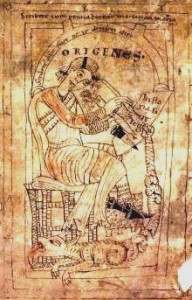 Well, this made me laugh:
Well, this made me laugh:
In authoring scripture, Origen [an early theologian] argues, God has deliberately planted all sorts of interpretive obstacles: problems, difficulties, mistakes, morally objectionable stories, and so forth. These manifold obstacles lead us to press beneath the surface of the text and to search more deeply for its spiritual meaning. Such spiritual exegesis isn’t just a scholarly technique. It requires ascetic purification, the spiritual transformation of the reader. So the problems in scripture – the same problems which Marcion takes as proof of divine wickedness – are planted there by God to lead us into the depths of spiritual life, just as a wise teacher might plant mistakes in a class discussion in order to lead the class, gently and unobtrusively, towards the truth.

In the bizarro world where that argument makes sense, are atheists the most devout believers?
Uh, problems manifest in the text should make the reader ponder the text more deeply in light of the text’s ultimate purpose and goal? I don’t see how that is daft. The belief that a scripture (or any scripture) is somehow divinely inspired may be daft, but if one believes that such a text is divinely inspired, isn’t it a sound method, when encountering difficulties with the text, to see if it is possible to look beyond the surface meaning of the text to determine if it is possible to come to a solution to the difficulty? Augustine thought so. Aquinas thought so. Richard Hooker (there’s an Englishman for you!) thought so. Reinhold Neibuhr thought so. Karl Barth thought so. Those weren’t stupid people.
Of course they weren’t stupid people. Still, you have to admit it’s remarkable how magical thinking can muddle even the smartest minds. It’s all a beautifully constructed incoherent mishmash.
And as with God, so with dialectical materialism, so with postmodern identity politics.